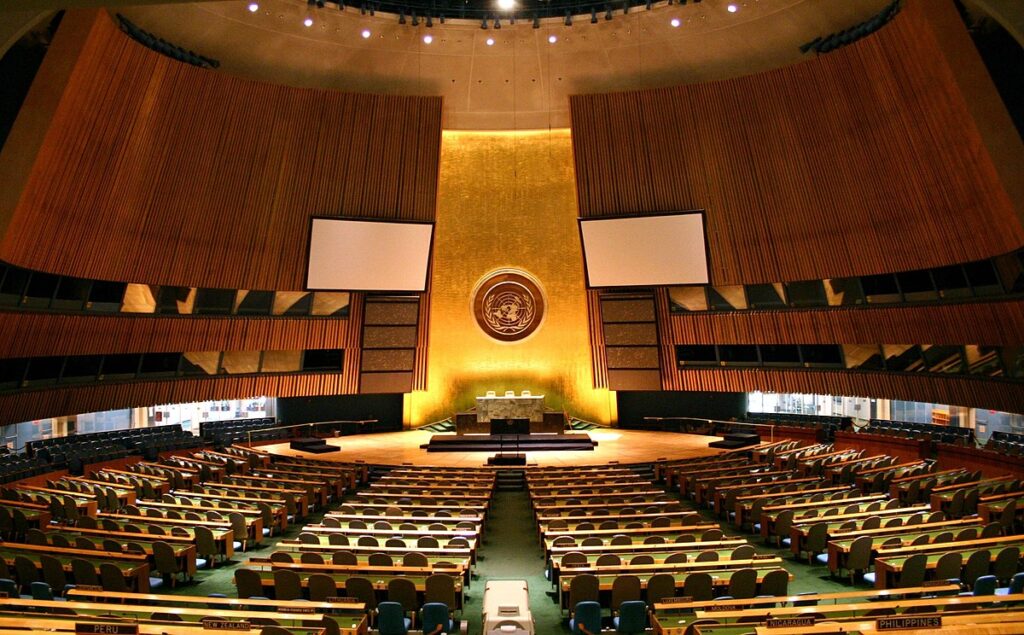Four new judges and one re-elected at the ICJ:
an election of firsts
By Dr Massimo Lando
Published on 14 November 2023

Photo credit: United Nations General Assembly hall in New York City, taken by Patrick Gruban, cropped and downsampled by Pine. This file is licensed under the Creative Commons Attribution-Share Alike 2.0 Generic license.
On 9 November 2023, the UN General Assembly and Security Council held election to fill five upcoming vacancies on the International Court of Justice (ICJ). These five seats will become vacant on 6 February 2024, when President Donoghue (United States of America) and Judges Bennouna (Morocco), Charlesworth (Australia), Gevorgian (Russian Federation) and Robinson (Jamaica) will end their respective terms. This year’s ICJ elections took place against the backdrop of the Russian unlawful invasion of Ukraine, on-going since February 2022, and the more recent eruption of an armed conflict in and around Gaza. Within the international law community, there was quite a lot of talk about the possibility that, given its invasion of Ukraine, the Russian Federation may risk losing its ICJ seat. In fact, this is precisely what ended up taking place, whether the underlying motivation for the States’ decision not to vote for the Russian candidate related to Ukraine or not.
The elections confirmed Judge Charlesworth on her seat, which she had taken up after Judge Crawford’s untimely passing in 2021. In addition, the four newly-elected judges are: Bogdan-Lucian Aurescu (Romania), Sarah Hull Cleveland (United States), Juan Manuel Gómez Robledo Verduzco (Mexico) and Dire Tladi (South Africa). It is the first time that a South African and a Romanian national are elected judges, although individual of both nationalities have previously served as judges ad hoc at the ICJ or judges of the Permanent Court of International Justice (for example, John Dugard, from South Africa, was appointed judge ad hoc and Démètre Negulesco, from Romania, was a judge of the Permanent Court). CIL Dialogues and the Centre for International Law congratulates the elected candidates.
The most notable feature of this election is that, for the first time since the ICJ’s establishment in 1946, the Russian Federation will have no sitting judge. It has long been the convention for the five permanent member of the Security Council to have a national on the Court. For a long time, the only exception was China. In the 1970s, States started to recognise the People’s Republic of China as the entity to occupy the Chinese Security Council seat. Up until that time, Chinese judges on the ICJ had come from across the Taiwan Strait. However, for a period of nearly two decades, between Judges Wellington Koo and Ni, there was no Chinese person on the Court. The Chinese case is exception because it is tied to matters of recognition and statehood, which go to the very root of UN membership. In this sense, there only remains one example of a permanent member of the Security Council not having a seat on the Court. This is the United Kingdom, which lost its seat in 2017, when Sir Christopher Greenwood lost his seat to Dalveer Bhandari (India). With the Russian Federation losing its seat, one can very well doubt how solid the convention that Security Council’s permanent members have a judge on the Court is. Future elections will tell, but it seems that shifting geopolitical conditions are not beyond being possible catalysts of changes in the Court’s composition.

